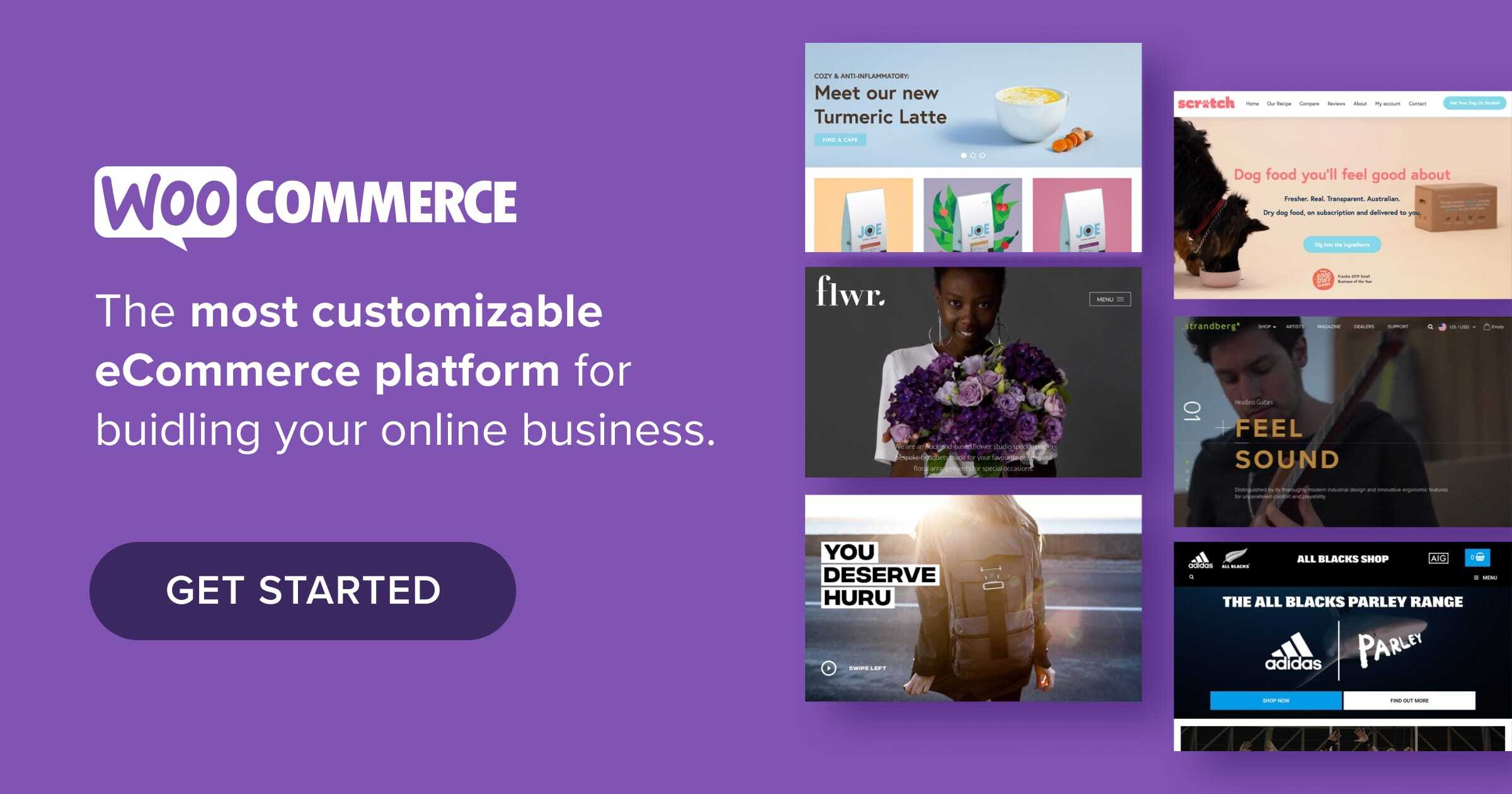Are you thinking about starting your own business? Ecommerce platforms like WooCommerce have made it possible to do this, no matter how much prior business experience you have. And one of the first steps to take is to explore some of the best online business ideas that are in operation today.
Launching a business online rather than with a physical store makes it much easier to get started and try out your business idea without having to invest significant money. Today is your chance to examine some online business ideas and find out what it takes to get started.
Why you should start an online business
More than ever, people are turning to the internet for their purchases. In fact, ecommerce businesses are estimated to make $7.4 trillion in sales by 2025. While you may think that online retail giants have covered the entire market, there’s plenty of room for online businesses dedicated to niche interests and superior customer service.
If you can align your passion with something people need or want, you’ve got the early makings of a great online business idea that’s also personally fulfilling.
If you want to start an online business, there are several advantages to this over a physical location, and a few considerations as well. We could call these the pros and cons of starting an online business, but ‘cons’ isn’t the right word, because really these are just things to be aware of as you work on launching your business.
Advantages of online businesses
Lots of people dream and imagine doing things like starting a small business. But most people never act on those ideas, and the world misses out on what could have been. You can actually do this! You can make this happen, and until you try it, you’ll never know what you’re capable of building and accomplishing.
Having your own online store gives you several advantages over having a brick and mortar location.
Flexible work hours and location
Running a business online lets you work from home — or wherever you’d like! — and set your own schedule. You may even be able to make a passive income while away from your computer, depending on the type of online business you build.

But with a physical location, you have to show up every day, or customers can’t shop with you. Online businesses offer more flexibility for your schedule.
Greater growth potential
With an online store, you’re rarely limited by your location. Expand your marketing across borders and ship to customers around the world without big investments in new infrastructure.
A brick and mortar store can only sell to people within a certain vicinity of that store. But an online store can sell to customers from anywhere. So the potential for growth is greater with an online business.
A smaller initial commitment
If your new small business has a physical storefront, you are committed. This is now your job, and it’s sink or swim. But if you start an online small business, you have more freedom to test the waters and ramp up more slowly.
Many small business owners are relatively new and have a lot to learn. With an online business, that’s okay! You can take the time to learn as you go, because you haven’t committed a huge upfront investment.
If your first attempt to sell online doesn’t go as well as planned, what you will learn in that process will make your next attempt even more likely to succeed. Or, you’ll be able to pivot and adjust your initial idea and turn it into a bigger success.
Low startup costs
Since your business is online, you won’t have to rent a physical storefront, office space, or warehouse. That means no rent, possibly no inventory (depending on your business model), and, for a while probably, no employees. You can spend your time learning the internet business world, social media marketing, customer service, product fulfillment, web development, and the other things you’ll need to know, without having to spend so much money on startup costs.

More options
There are many types of businesses you can run online that just wouldn’t work with a physical store. For many businesses, a physical location simply wouldn’t make sense. So the number of possible business ideas you can choose from online is much greater.
Considerations when starting an online business
While there are several huge advantages to online businesses, there are also a few things to consider as you get started, so you don’t go in with unrealistic expectations.
Success is not immediate
A successful online business usually takes some time to develop and grow. This is not a way to get rich quick. You have to work at it, and for most online businesses, the first several months will not produce a ton of sales. Why? Because getting noticed and found online isn’t immediate.
With a well-chosen business idea, you can succeed at this, and, over time, any ecommerce site or other type of online business can get found by its target audience. But you probably shouldn’t immediately quit your job to start an online small business, expecting to rake in huge profits right away. It does take some time.
This is also an advantage to starting a business online, as already mentioned. You don’t need to succeed right away. You have time to ramp up slowly, learn as you go, and build for long-term success.

Lots of competition
First, there are the big online stores like Amazon and Walmart. Then, there are all the other online businesses, some of which will be in whatever niche or industry you select. The online business world is not a wide open, empty vista. It’s a bustling city and everyone’s competing for attention.
Plus, there are other distractions, like social media, that make it harder to get and keep attention from people who would be great customers. That, too, is a form of competition. This is one reason building a profitable online business takes time. But as long as you go in with awareness, knowing what to realistically expect, there’s no reason you can’t succeed with your online business idea.
A learning curve
You need to learn a few things to run a successful online small business. It will not just happen. And what you’ll learn will change over time because the internet is always changing.
Here are a few skills you’ll need to either learn to turn your online business idea into reality:
- Search engine optimization (SEO). This is work you do to be found online without having to pay for ads.
- Social media. You’ll likely want a social media presence and will need to learn social media marketing, at least for one or two of the major platforms.
- Website management. You’ll need a website, and will have to learn how to manage this asset.
- Customer service. You will have customers, and they will expect to be treated well. They won’t care if you’re a brand new business. You still have to deliver the product or service they paid for and provide a good customer experience.
- Digital marketing. Getting found online, converting website visitors into paying customers, writing sales copy, doing email marketing, setting up automation — these are some of the digital marketing skills you’ll develop over time.
- Business finances and accounting. Keeping your books, revenue, expenses, taxes, and other financial tasks is a huge part of running a successful business.
Again, you don’t need to be a pro at all of this before you first start an online business. You can learn as you go. Because you aren’t making a huge initial investment, you have some flexibility to gain new skills as you build the business. As you grow, you can also hire other people — like a social media manager — to help with some of these tasks so everything isn’t on your shoulders. No one can be an expert at everything, so you’ll eventually want to do this as you discover the things you enjoy doing, and the things you don’t like as much.

But as the business owner, even if you do outsource some of these tasks, you want to have a baseline understanding of them so you can make smart decisions and have productive conversations with whoever you might be working with.
WooCommerce has tons more resources and articles about these and many other topics related to running an online business.
There will be some variation here depending on the type of small business you start, but there are certain tools almost every new online business needs.
A website with ecommerce capabilities
To get a website, you first need a URL, and this will depend on your business name. You must choose your name carefully. Your first idea might not work. Even if it’s a great name, it might already be taken by someone else.
See more tips about naming your business, getting a URL, and setting up a small business website. For an ecommerce business, you’ll also need a website that has the capability of presenting products with product pages, category pages, and checkout pages.
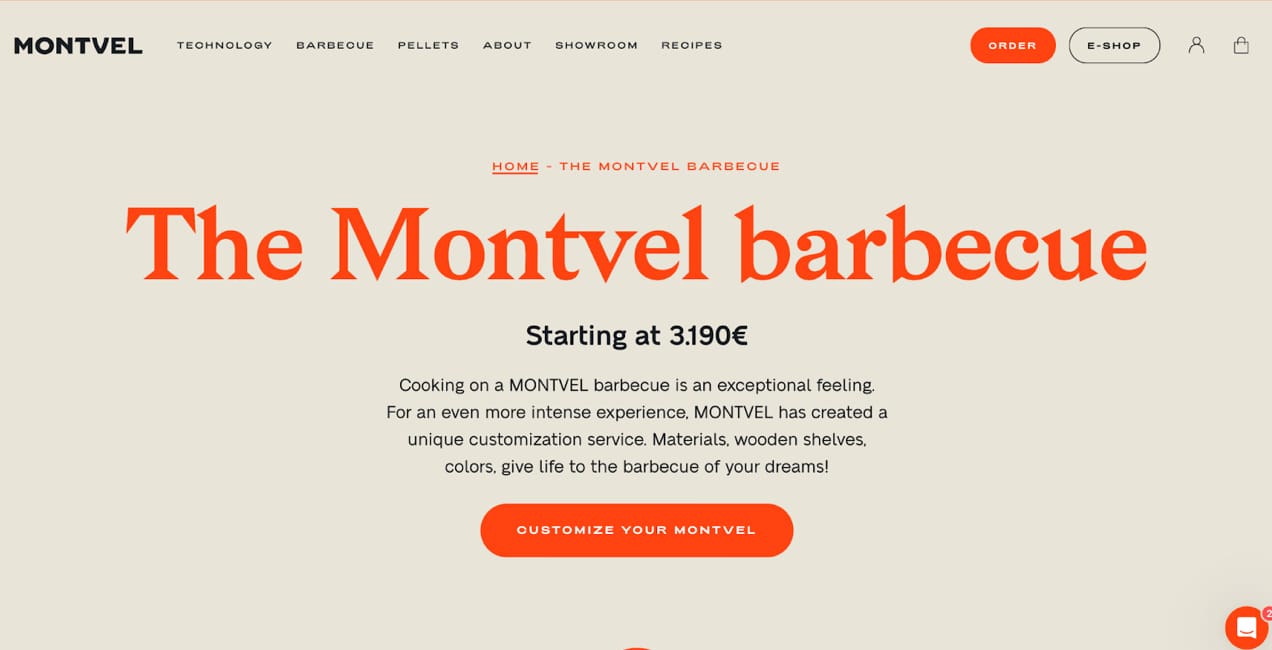
WooCommerce is an excellent, free option. Built for WordPress by the people behind WordPress.com, it’s incredibly powerful and flexible. Plus, you can build and design your website, add products, and more without having to work with a single line of code. All of this while maintaining full control and ownership over all of your hard work.
And with hundreds of available WooCommerce extensions, you can customize your online store in all sorts of ways that help your business and better serve your customers. You can work on your website on your own, or find graphic designers and WooCommerce development experts online.
A payment processor
To sell online, your business will need a way to accept payments. You can do this using services such as Stripe or PayPal, as well as with other methods including WooPayments. You’re looking for any way to accept payments that allows for secure transactions that your customers will be able to easily trust.
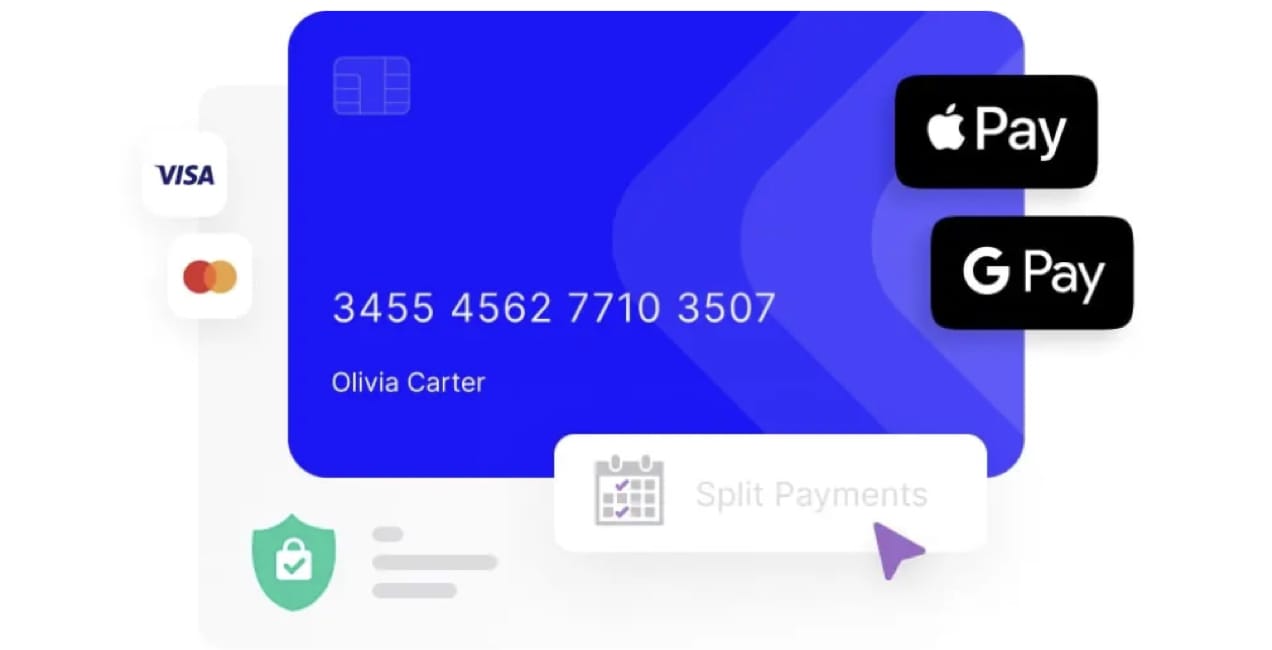
WooPayments is the ideal solution for new and existing stores using WooCommerce. It integrates directly into the WooCommerce dashboard for easy management. Plus, it accepts many different kinds of popular payment methods and currencies in 135+ countries around the world.
Social media
While it’s not a requirement to run an online business, you should probably have at least one social media page devoted to your business. It would be almost unheard of not to. Your personal social media accounts will not serve your business well, because if you decide to get into social media marketing, you’ll do this from a business social media page. Plus, customers don’t want to see pictures of you from college.
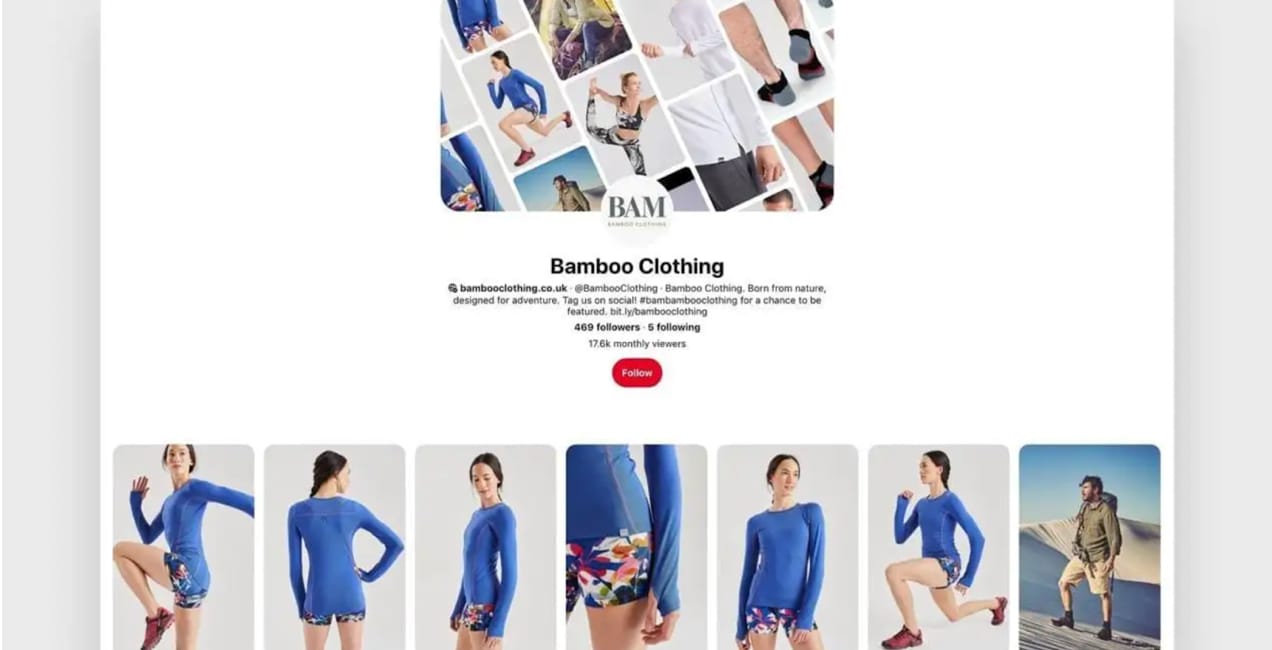
But social media management can get overwhelming if you have too many pages, so for your business, you may want to start with just one or two. Which social media platforms should you start with? It depends on your personal comfort level with each one, which one your target audience uses the most, and which one seems to offer the greatest potential for helping grow your business.
See tips for choosing a social media platform, and nine ways to use it to grow your business.
Email marketing platform
With online businesses, email is going to be your best method for communicating with customers and leads. When customers make purchases, they’ll want to see email confirmations, receipts, shipping notices, and other messages.
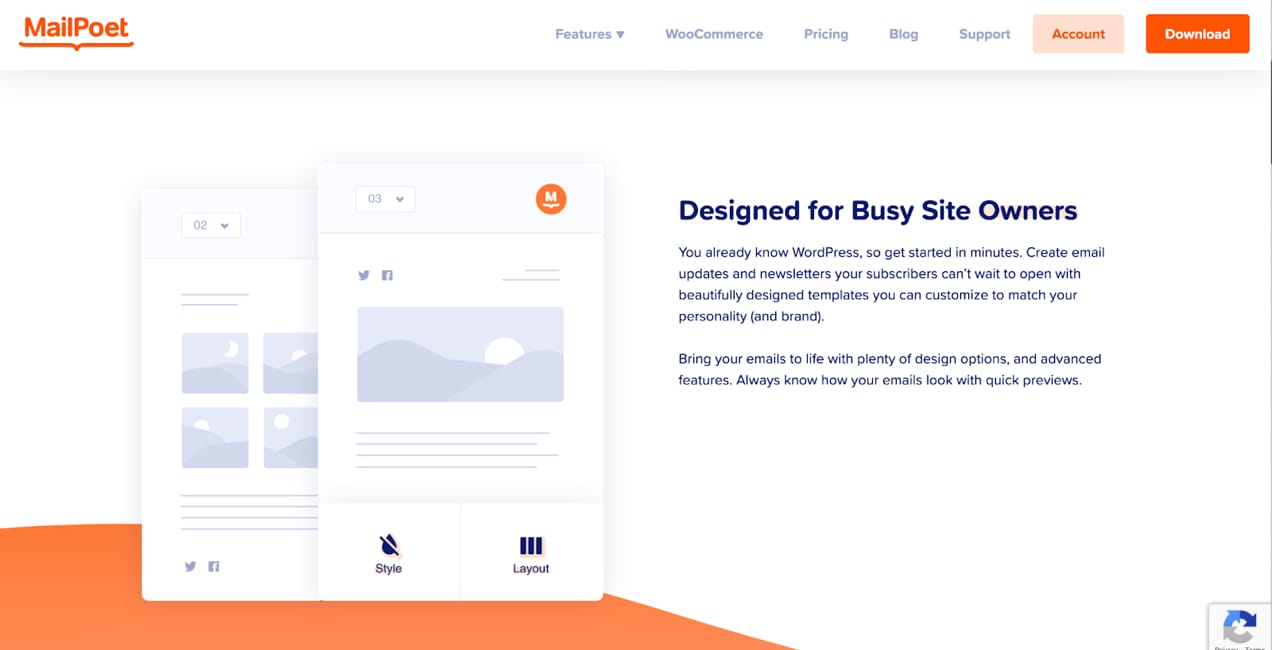
You can also use email to promote products, make special offers and deals, ask for reviews, and sustain engagement with your business. Nothing works better than email for this purpose, because you’re speaking to your audience directly, and for a very low cost.
MailPoet is a great email marketing platform to try out because it integrates seamlessly with WooCommerce and offers automation tools like those mentioned above.
Other marketing tools
Email and social media marketing are just two of several digital marketing tools you’ll want to start learning. There’s also search engine optimization, content marketing, lead generation, and more. Again, you can go at your own pace with an online business, so you don’t have to learn all this at once. But for reference, here are more online marketing tools and skills you can start learning.
How much does it cost to set up an online business?
Can you start an online business with just $1000? The answer is yes, but with some conditions. First, it depends greatly on the type of business you start. An ecommerce business requires a bit more investment than an online consulting business, because the ecommerce store needs products to sell, packaging design, and all the rest.
And among ecommerce businesses, there’s also a wide range of upfront costs. For example, a dropshipping business costs less to start than a business creating its own products.

If we get down to the core basics, all you need to get started is your own website and at least one product or service. Setting up a basic website costs very little at first, and if you create your own content, you can start your business for less than $1000. But don’t expect it to end there — you will need to continue to invest money as you go.
If your business will not need any employees at first, you may still find that you need to hire out tasks to freelancers and contractors now and then, such as web design, copywriting, and web development. You can also hire a virtual assistant to perform repetitive tasks that need to get done, but that you don’t have time for.The more you try to learn on your own, the longer it will take, but the less money you’ll need to spend.
So that’s the tradeoff — you either spend more money and launch faster, or spend less to learn it yourself, but launch slower. Either way is okay.
What online business should you set up?
There are several aspects to deciding which online business idea you’d like to start.You need an audience that has particular wants, interests, and problems. You need to develop products that address or solve those problems and interests. And you need a way to deliver those products and a great customer experience so people keep coming back for more.
Check out our ’From Idea to First Customer’ series for a detailed look at this process.We’ll get more in-depth in a moment, but here’s list of the most common types of online businesses:
- Dropshipping. This is when you sell products that are manufactured elsewhere, eliminating the need to hold inventory.
- Wholesale. A category of business where you sell components, ingredients, or other products in bulk to other businesses.
- Print on demand. Another way to reduce the need for holding inventory, this strategy involves printing your designs on pre-made products as customers order them.
- Online courses. You can use your talents to share knowledge through coaching, instructional courses, and training.
- Subscriptions. Almost any business can modify their products or services to fit a subscription model. This provides more consistent recurring revenue and often increases the average lifetime value of each customer.
- Memberships. This model is somewhat similar to subscriptions, but a membership grants the customer special access to content, people, or other opportunities that no one else gets.
- Affiliate marketing. Affiliate marketing can work in tandem with almost any other business type, allowing you to leverage other people and their audiences to sell your products.
How do I decide what business to start?
If you’re committed to the idea of launching an online business venture, the first task is to consider your interests, skills, abilities, and passions.
Your skills and passions
What do you already have an above-average skillset or knowledge base about? What are you interested in? Having a natural passion for the things you’ll be selling will increase your ability to relate to your customers and serve them better.

If you loathe the idea of eating meat, and don’t have any experience in the food industry, then it wouldn’t make much sense to start an online beef jerky store. You’re already good at certain things. Look for ways to leverage those as part of your new business.
Also, for some people, the specific product or service may not be the thing that decides it. If you already possess skills in areas like digital marketing, SEO, or operations, you can use those in any of your online store ideas.
Unmet needs and opportunities
Another approach is to think about needs you see that are currently not being met. Is there an industry or product you like that seems to have lousy customer service and that you think you could do better? Is there a quality problem you can improve on? Do you see any missed opportunities that other businesses aren’t doing anything about — especially in industries and niches you’re interested in?
New ideas
You may also just have a great idea that you think you can turn into a product or business. Develop it, and run with it, and see where it goes.
Market research
Early on, you will probably find several possible small business ideas you like. As you narrow down your list, conduct market research on what you see as your most promising ideas. This may eliminate some ideas, and it may also make you aware of new ideas you hadn’t thought of. But the main benefit is that it will help you develop your best business ideas to make them even more likely to succeed.
What should you research?
Look at competitors in your chosen industry and who sell similar products and services. Look at costs and revenue potential. Read customer reviews about similar products and see what they like and what they complain about. Complaints could present opportunities to meet a need. Read articles from business websites about your industry and begin learning the major issues and challenges. Find industry websites and subscribe to their newsletters. Listen to podcasts.
These are relatively simple, but important, things to do when you start to conduct market research.You may even consider interviewing people like customers, other small business owners, or experts in the field. You’d be surprised who might give you a few minutes of their time if you reach out to them on social media.

You can find much more about conducting market research about halfway down this online selling guide.
Best online business ideas in 2023
If you’re excited to start your own business, you may be encouraged to know that beyond the niche you serve, there are all kinds of profitable online business ideas you can explore. Not all ecommerce stores develop, stock, and sell their own unique products. Some online business owners simply promote products manufactured by other companies.
Some provide services online, and others package existing products in unique ways or design artwork that’s printed on everyday products. We’ve compiled the following types of best online business ideas you can start in 2023. Find the most lucrative business model that works for you and shape your offering to fit your passion and audience.
1. Self-developed products
If you have a product idea, the skills to turn it into reality, and the resources to make it happen, you can start your own online store where you make and sell products you have developed yourself. Products can range from food to clothing to handcrafted items to home décor, yard care, automotive, accessories, and more. You can make products yourself or work with a manufacturer or wholesaler.

You may also already have a brick and mortar store and are interested in expanding your audience by creating an online presence. You may have products you’ve been struggling to get into the big retail stores, and building your own storefront may be the better path to success. Maybe you have some recipes and want to start producing and selling your amazing confections.
An ecommerce site is the way to find out how audiences respond to your creations. Just about any product-based business can start an ecommerce store, and you can use this guide to walk through the process step by step.
2. Dropshipping
What if you don’t have the ability to create your own products, but you still want to sell something in a particular niche? Or, you might be hesitant to start an online store because you don’t want to handle production, inventory, and shipping. With a dropshipping business, you can avoid these expensive management tasks.
As a dropshipper, you sell products online, and another company fulfills your orders. You’re in charge of marketing, but a third-party vendor handles the product manufacturing, storage, and packaging. They’ll also take care of deliveries. You are essentially selling on their behalf.You can also use dropshipping to start your own private label, and work with the manufacturer to create unique, exclusive SKUS or branded merchandise.
There are several pros and cons to dropshipping business ideas.Launching a dropshipping business will have limited startup costs, since you won’t have to purchase products in bulk or rent warehouse space. On the other hand, you won’t have as much control over your product quality, packaging, or shipping times.
If you start dropshipping, you’ll need to choose a product niche and a supplier. Finding high-quality products and positioning them in a unique way can be the key to standing out among your competitors. For example, if you want to sell toys, you might package boxes of education-based toys categorized specifically around age and interest. While you may sell the same items as other vendors, parents will love that they can buy an entire box catered specifically to their child.
Then, you can manage your new store with the WooCommerce Dropshipping extension. Once you publish products, you can use this tool to send order notifications to your supplier.In the WooCommerce Dropshipping dashboard, you can see your total number of orders and projected profits.
You can also manage your inventory, packing slips, invoices, and affiliate products. Using this extension, you’ll have everything you need to start your dropshipping business and run it successfully!
3. Print on demand
Similar to dropshipping, a print-on-demand business involves working with a third-party company to develop products. Essentially, you’ll send the supplier your artwork and ask them to place it on brand-free, white-labeled products. Then, the supplier handles order fulfillment and shipping.
If you’re a creative person who loves coming up with new design ideas, starting a print-on-demand business could be ideal. You can simply send your digital designs to a supplier, and when someone orders from your site, they go right to work manufacturing the new shirt, sticker, hat, or one of nearly thousands of potential items.
Even if you’re not the one creating the designs, there is a big market for branded merchandise for other businesses. You can still create customized merchandise, but just use logos and company artwork. You can put this on notepads, pens, hats, shirts, water bottles, and many other items.

A print-on-demand business does have some of the same drawbacks as dropshipping. Since a supplier will handle your orders, you won’t be able to fully control product quality, packaging, or shipping. Additionally, selling products on a per-order basis can lead to lower profit margins.
When you’re just starting a print-on-demand business, you’ll need to find a fulfillment partner and start sending them artwork. Then, you can build an online store with WordPress and WooCommerce. Some suppliers, like CustomCat and ScalablePress, seamlessly integrate with WooCommerce, enabling you to sync inventory and orders.
4. Wholesale
Many aspiring business owners accidentally box themselves into thinking only about consumers as customers. But that’s just one business idea category. It’s called B2C — business to consumer. There’s another category called B2B — business to business.
Companies buy all sorts of stuff from other companies. They buy technology, office supplies, software, furniture, and employee benefits packages. They buy coaching, consulting, and training. They buy services like accounting, bookkeeping, digital marketing, and social media management. And, they also buy wholesale. That means purchasing things in bulk. This can lead to fewer, larger orders that are easier and more profitable to fulfill.
There are also distributors — companies who buy in bulk from other companies and resell in bulk to others. These are like intermediaries, and this works because some products are perishable, or need to be ordered and delivered relatively quickly, and companies can’t wait for overseas shipments to cross oceans.

The key with wholesales businesses is dependability. Since you’re selling large quantities of products, you have to be able to deliver them on time and in good condition, because companies making purchases of this size can’t afford to have their businesses disrupted because a wholesaler failed to come through.
See how WooCommerce can help launch and grow your wholesale business idea.
5. Affiliate marketing
One way to start earning a passive income is to become an affiliate. As an affiliate marketer, you share a business’s products or services on your website. When your readers make purchases through your links, you earn a portion of the sales.
Fortunately, it’s pretty fast to sign up for an affiliate program and start with your own website. With Amazon Associates, you can choose from millions of products and start earning up to ten percent in commissions.
The key to running a successful affiliate marketing business is to have an online following. Social media influencers are people who have very large followings, and many such people use their clout with audiences to make money as affiliate marketers. If you don’t have a large or smaller-but-dedicated audience, it can take time to develop one. Additionally, you’ll have to find products that you truly believe in and that are relevant to your content so that your audience isn’t thrown off.
Once you join an affiliate program, you can use WooCommerce to showcase the products you support. After adding a new item, you can identify it as an affiliate product. Then, simply paste your affiliate link to drive visitors to the third-party website. Although you’ll need to be patient when starting out as an affiliate, you can develop a consistent income as your audience grows. Learn more about ecommerce marketing.
6. Online courses
Do you know so much about a certain topic that others think it’s impressive? Could you write an entire book on your favorite passions? Do you have specific skills that your friends find super helpful?
If these things are true, you can likely use this knowledge to create online courses. Others will benefit from your classes while you’ll generate income in a fun, fulfilling way.
You have the freedom to develop online courses that students can purchase and complete on their own time. Write course materials, film educational videos, and create interactive quizzes that test your students’ knowledge. Whether you’re sharing photography tips, fashion advice, or self-improvement strategies, there’s likely an audience that’s eager to learn.
B2B online courses can be especially successful business ideas if you have a set of skills or knowledge that are valuable to businesses. And these can be in particular niches too, not just broad categories.
For example, you can create an online course teaching marketing to dentists. There’s a whole audience for this, because many dentists don’t know anything about marketing, but they need it to attract new patients to their clinics.
Another excellent online business idea that is also knowledge-based is an online tutoring business. Here, you could work with students in school to help them improve their grades and learn what they haven’t become proficient with yet in class. With a tutoring business, you don’t even have to come up with the coursework. You just help the student with their existing work.
Similar to this would be an online music instruction business. If you have a lot of experience with an instrument, you could teach beginners and children how to play.
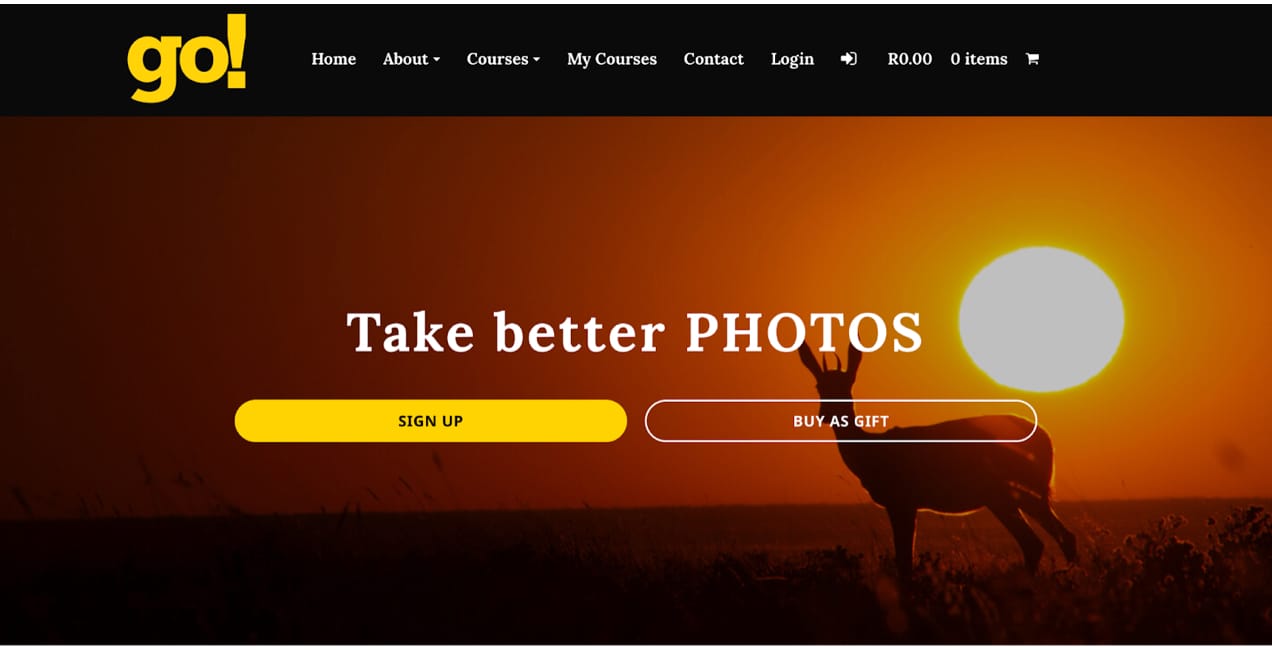
One of the best things about any business that uses online courses is that there’s little to no inventory, unless you choose to offer supplemental materials like workbooks. With so few business costs, your course revenue is almost pure profit. Online education is the business idea with one of the highest margins.
If you’re ready to start selling online learning materials, you can create your first course using Sensei LMS. This learning management plugin enables you to develop educational modules and lessons with the WordPress Block Editor.
Then, you can install the Sensei Pro extension to monetize your new courses. This tool can display your classes as WooCommerce products, which you can start selling to your audience.
7. Subscriptions
There are many types of subscription-based business ideas you can explore. Subscription boxes allow you to repackage products in a way that’s more helpful to customers and creates additional revenue. Instead of making one-time purchases, customers will continue to make recurring orders for weeks, months, or even years.
For example, you could start a meal delivery business to send customers fresh food every week.

But you don’t have to create completely new products. Often, subscription businesses curate monthly packages with a selection of existing goods related to their niche. These items can include anything from self-care products to pet toys. You may find that many subscriptions are more appealing to businesses than to individual consumers, because businesses tend to use more stuff.
For example, a business might buy into an office supply subscription, whereas most consumers probably don’t go through enough paper, staples, pens, envelopes, and other supplies to make a subscription necessary.
The subscription business model can also work in tandem with other business ideas on this list. For example, instead of paying for each individual online course in your course catalog, you could also offer a monthly subscription that gives access to all of them. This is completely passive income that requires nothing from you, and it’s a great deal for the customer, too.
Subscription businesses are highly competitive, so to succeed, you’ll need to stick to a niche audience and focus on solving their problems or meeting their unique wants. Use this guide to start a subscription business, or add on a service to your existing one.
Once you settle on a plan, you can start selling your boxes with the Woo Subscriptions extension. With this tool, customers can choose a schedule that suits their needs. Plus, you can set up renewal notifications and more efficiently manage subscriptions and operations.
8. Memberships
With a membership program, you have the opportunity to truly build a community behind your brand. Memberships create a feeling of exclusivity for your customers, giving them special access to things like video libraries, ebooks, discounts, free shipping, forums, and special events. You can add memberships to existing products and services, or even sell them as a standalone offering.

WooCommerce Memberships provides all the functionality you need to sell memberships online. It enables you to restrict the content on your site specifically to members, drip that content out over time, offer members better shipping options, and create other exclusive perks just for customers. There are many other online business ideas you can explore in addition to what’s listed here. The more time you spend on the internet thinking like a business owner rather than a consumer or a social media user, the more ideas you will come up with.
Launch your online business
Regardless of your professional experience, you can start a successful online business. Once you identify a niche audience to serve, you can build your vision around one of the business ideas in this article. Whether it’s selling a course, curating subscription boxes, printing your art on demand, a coaching or consulting business, or something else, you get the freedom to create something that matches your lifestyle and passion.

But no matter which online business idea you run with, WooCommerce provides everything you need. Design a beautiful website, accept payments, sync with suppliers, manage inventory, reach new customers, link a card reader to your online store, and more — all without being a developer! Plus, you’ll benefit from a world-class support team and extensive documentation.
Use this A-Z checklist to get to work on your online business.

